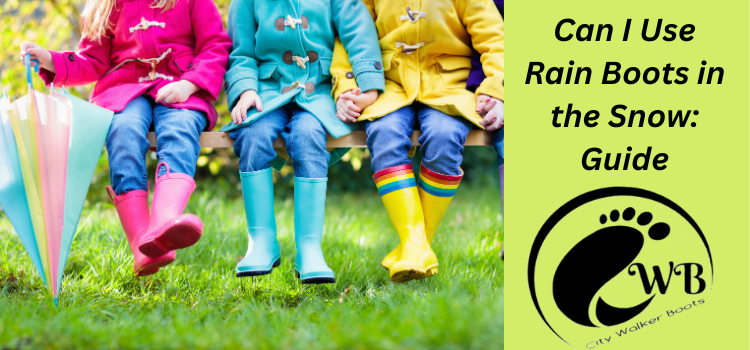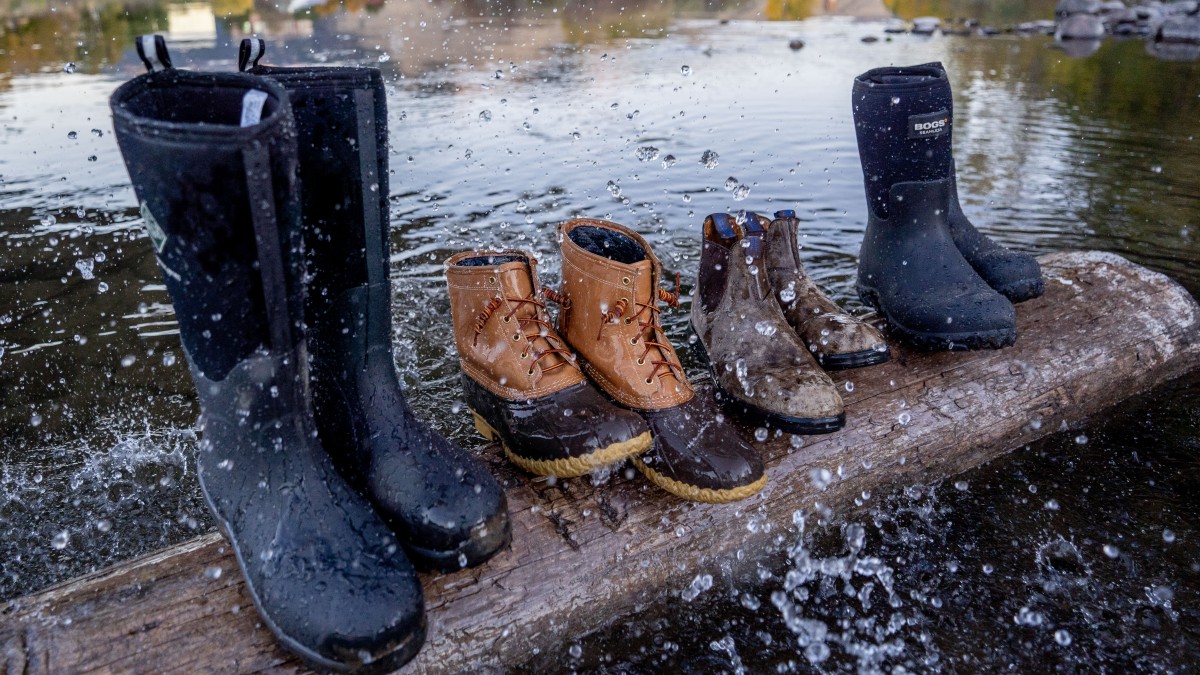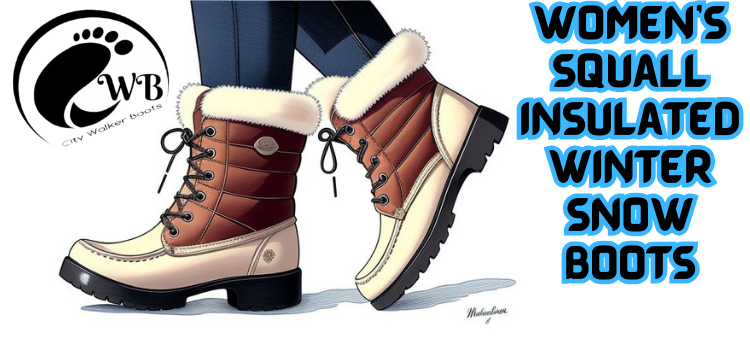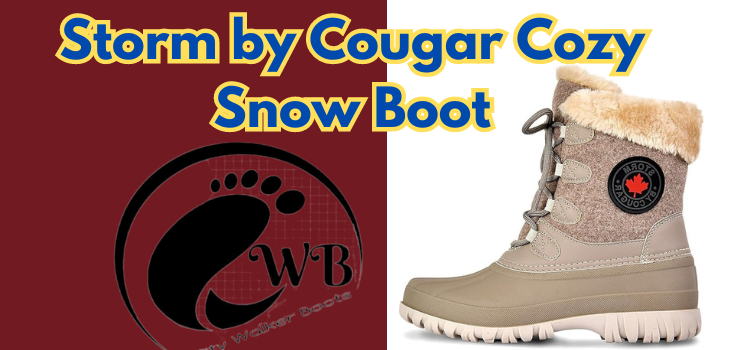Can I Use Rain Boots in the Snow: Guide

As an Amazon Associate, I earn from qualifying purchases.
When winter arrives and the snow starts falling, many people wonder if it’s possible to use their rain boots as a substitute for snow boots. In this article, we will explore whether rain boots can be used in the snow and if they provide enough protection and warmth. See also Are Hunter Rain Boots Good for Snow? :Review
A Fusion of Style and Functionality: Use Rain Boots in the Snow
Say goodbye to the notion that rain boots are only for wet weather. These versatile boots seamlessly transition from rainy days to snowy escapades, offering a perfect blend of style and functionality. Embrace the fusion as you step into a winter world where your footwear not only protects but also complements your fashion-forward sensibilities.
Superior Waterproof Performance: Use Rain Boots in the Snow
Designed for wet conditions, rain boots effortlessly tackle snow-covered terrain. The superior waterproof performance ensures that your feet remain dry and cozy, making them an ideal choice for navigating slushy sidewalks and icy paths. Bid farewell to soggy discomfort, and welcome the confidence that comes with boots capable of handling whatever winter throws your way.

Image Credit: busbeestyle.com
Traction for Icy Adventures: Use Rain Boots in the Snow
Snow-covered streets demand reliable traction, and rain boots rise to the occasion. The specially designed soles provide the grip needed to navigate slippery surfaces with ease. Whether you’re commuting to work, heading to a winter festival, or embarking on a snowy hike, these boots ensure you stay sure-footed in every frosty step.
Fashion-Forward Winter Statements: Use Rain Boots in the Snow
Transform your winter wardrobe with the inclusion of rain boots as a style statement. Available in a variety of colors and designs, these boots allow you to express your personality while conquering the snow. Break away from traditional winter footwear and embrace the bold choice of rain boots that make you stand out in the winter crowd.
Year-Round Reliability: Use Rain Boots in the Snow
Rain boots aren’t just for one season – they’re a year-round companion. Their durability and resilience make them suitable for various weather conditions, ensuring they remain a staple in your footwear collection beyond the snowy months. Invest in a pair that not only conquers winter but promises longevity and versatility.
The Difference Between Rain Boots and Snow Boots
Although rain boots and snow boots may appear similar, there are some key differences to consider. Snow boots usually have a thicker sole and are made from materials that are more suitable for cold and snowy conditions. They also tend to be taller, reaching past the knee, while rain boots typically only go up to mid-calf.
Can You Wear Rain Boots in the Snow?
The answer is yes, you can wear rain boots in the snow. Rain boots can be particularly useful when the snow turns into slush, making other types of shoes easily soaked and uncomfortable. However, it’s essential to note that rain boots are not specifically designed for snowy conditions. They lack insulation and proper traction, which may lead to decreased warmth and more slipping on icy surfaces.
Transforming Rain Boots into Snow Boots
If you still want to use your rain boots in the snow, there are a few things you can do to make them more suitable for winter conditions. Adding shearling insoles to your rain boots can provide extra warmth and insulation. Additionally, wearing thick, cozy socks can help keep your feet comfortable. However, it’s important to remember that these solutions may not offer the same level of protection as dedicated snow boots.

Image Credit: www.outdoorgearlab.com
When to Wear Rain Boots
Rain boots are designed to keep your feet dry in wet conditions, including rainy weather and slushy snow. They are ideal for protecting your feet from moisture, but they may not provide the necessary warmth, insulation, and traction needed in extremely cold, icy, or snowy conditions. If you live in an area with mild winters or experience more rain than snow, wearing rain boots in the snow could be a practical option. Are Cowboy Boots Good for Snow_ Discover the Best Winter Footwear
Frequently Asked Questions For Can I Use Rain Boots In The Snow
What Is The Difference Between Snow Boots And Rain Boots?
Snow boots and rain boots have some differences. Snow boots usually have a thicker sole, are made from synthetic materials, and are taller, going past the knee. Rain boots, on the other hand, typically stop at mid-calf.
How Do You Make Rain Boots Into Snow Boots?
To make rain boots into snow boots, use shearling insoles to add warmth and insulation.
Can Waterproof Boots Be Used In Snow?
Yes, waterproof boots can be used in snow. They are effective in keeping your feet dry and protected from the snow.
Can I Wear Rubber Shoes In Snow?
Yes, you can wear rubber shoes in snow. They can keep your feet dry and are particularly useful when the snow turns to slush. However, keep in mind that rubber shoes are not insulated like snow boots, so they may not provide as much warmth in very cold conditions.
Conclusion
In summary, while you can wear rain boots in the snow, they may not be the most optimal choice. Rain boots lack insulation and proper traction for icy conditions, potentially leading to discomfort and increased slipping. If you do decide to use rain boots in the snow, adding shearling insoles and wearing thick socks can help improve warmth and comfort. However, it’s preferable to invest in a pair of dedicated snow boots for the best protection and performance in snowy weather.

